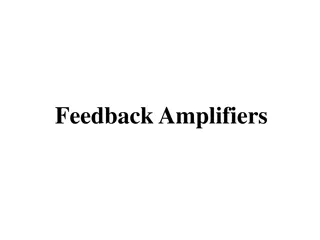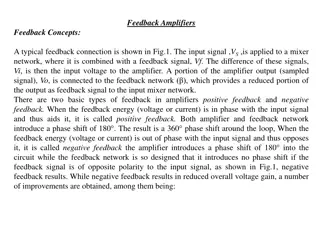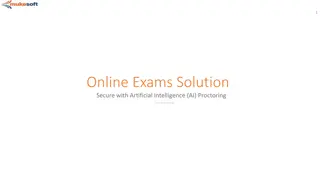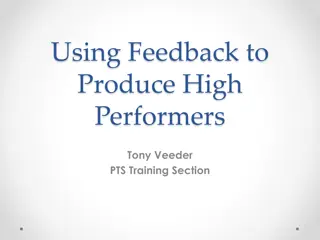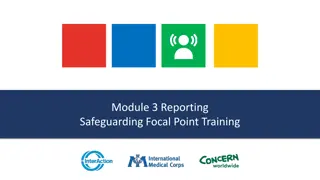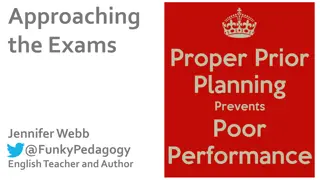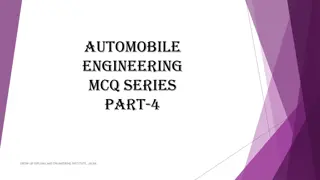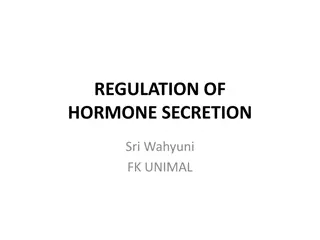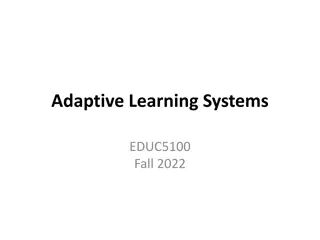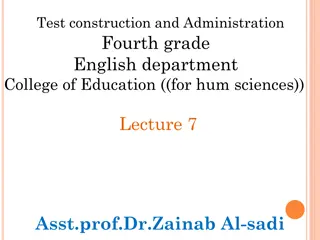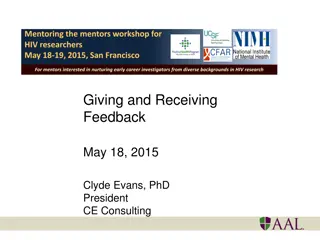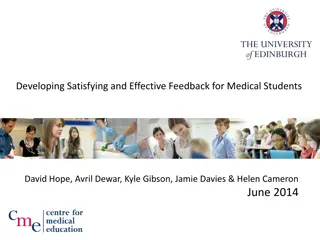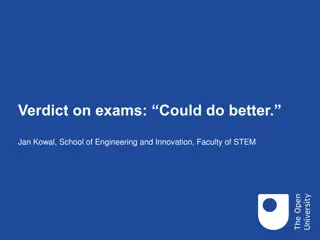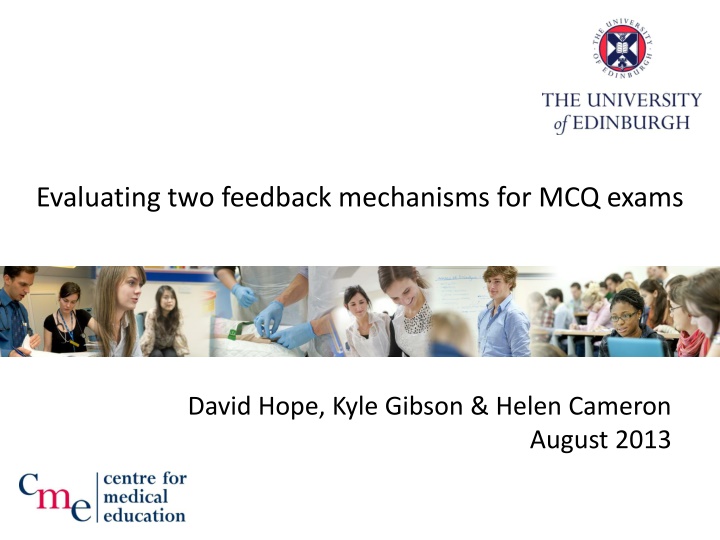
Evaluation of Feedback Mechanisms for MCQ Exams
Explore the effectiveness of two feedback mechanisms for multiple-choice question (MCQ) exams in undergraduate medical education. The study compares detailed immediate feedback and feedback summarizing performance on various domains, revealing insights on student performance and satisfaction levels.
Download Presentation

Please find below an Image/Link to download the presentation.
The content on the website is provided AS IS for your information and personal use only. It may not be sold, licensed, or shared on other websites without obtaining consent from the author. If you encounter any issues during the download, it is possible that the publisher has removed the file from their server.
You are allowed to download the files provided on this website for personal or commercial use, subject to the condition that they are used lawfully. All files are the property of their respective owners.
The content on the website is provided AS IS for your information and personal use only. It may not be sold, licensed, or shared on other websites without obtaining consent from the author.
E N D
Presentation Transcript
Evaluating two feedback mechanisms for MCQ exams David Hope, Kyle Gibson & Helen Cameron August 2013
Background Feedback is seen as an integral part of assessment Most work on feedback focuses on clinical contexts MCQ exams represent much of the assessment in undergraduate medical education (Scouller, 1998) Feedback does not consistently improve performance in clinical contexts (Boehler et al. 2006) Can we deliver satisfying and useful feedback for MCQ exams?
Summary of Work 196 students (completion rate over 95%) sat a 30 minute formative cardiovascular exam OSCA-FM: 50% received detailed, immediate feedback explaining each option for each question but they could not take the feedback away Tagging: 50% received a summary of their performance on a number of domains and they could keep this indefinitely Students sat a further 30 minute formative exam three weeks later
Tagging Tag Score Average Max Cardiovascular Biomedical Sciences Presentation Diagnosis and Management 42 42 23 38 38 25 50 50 31 Clinical pharmacology and therapeutics 25 19 25 Anatomy Physiology Pathology Chest pain Congenital Heart Disease Lipids Biochemistry ECG 9 28 8 3 8 3 19 9 9 22 11 2 11 3 13 9 9 28 16 3 16 3 19 9
Performance indicators Students performed similarly on the follow up formative exam OSCA-FM 73.0 Tagging 68.8 Previous cohort 69.5 No significant differences on this or final cardiovascular exam performance after controlling for prior academic ability
Diagnostics Of the 41 students who received a D or failing grade for the whole year the mean mark was 55.57 in the formative exam (a failing grade) Student performance increased by around one grade between the first formative exam and the cardiovascular summative exam
Student satisfaction Five indicates very satisfied Students were relatively satisfied with receiving either form of feedback (3.7) and felt them to be useful (3.6) Combining detailed formative feedback with summative tagging was regarded as extremely useful (4.5) Perceived usefulness did not correlate with performance or performance change
Conclusions Students find detailed feedback to be useful and desirable Such feedback yields no performance gains and perceived performance gains cannot be observed Formative MCQ exams can identify students at risk of failure/underperformance Focusing on how students receive and use feedback rather than how it is delivered may be a useful line of inquiry
References Boehler ML, Rogers DA, Schwind CJ, Mayforth R, Quin J, Williams RG, et al. An investigation of medical student reactions to feedback: a randomised controlled trial. Medical Education. 2006;40:746-9. Scouller K. The influence of assessment method on students' learning approaches: Multiple choice question examination versus assignment essay. Higher Education. 1998 35:453-72.




